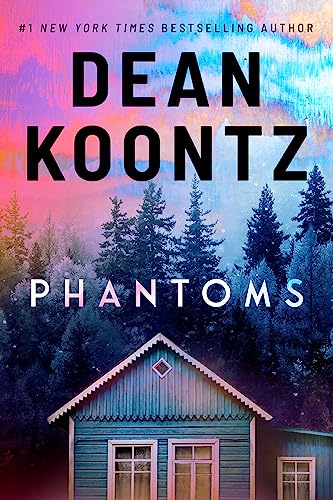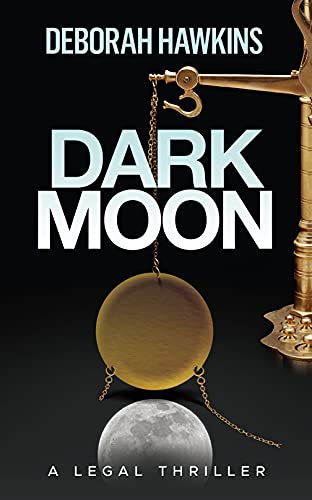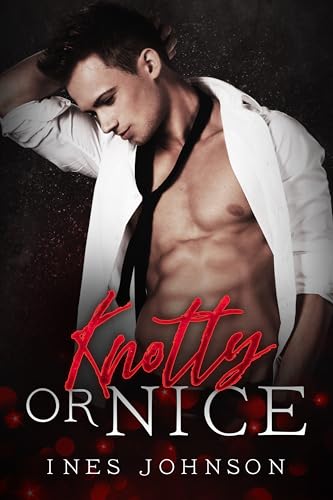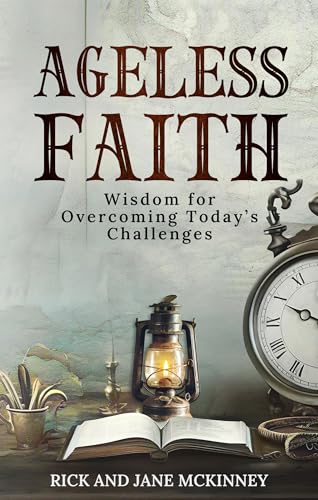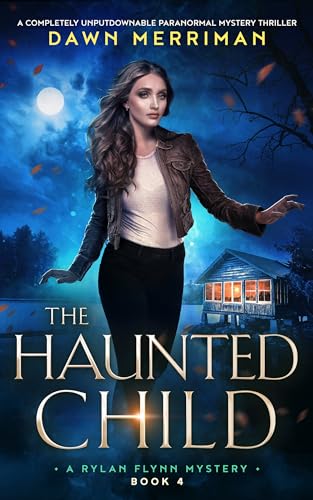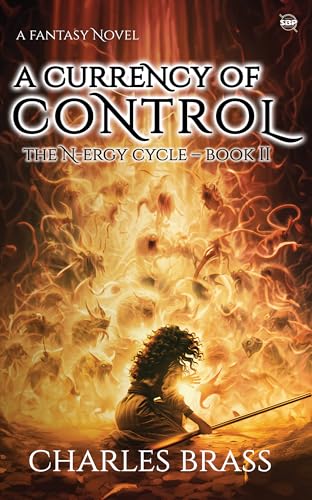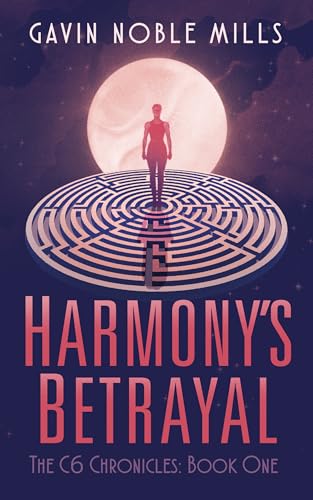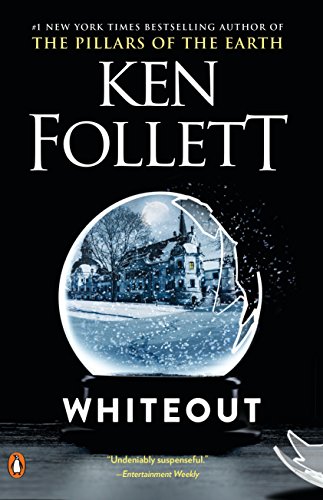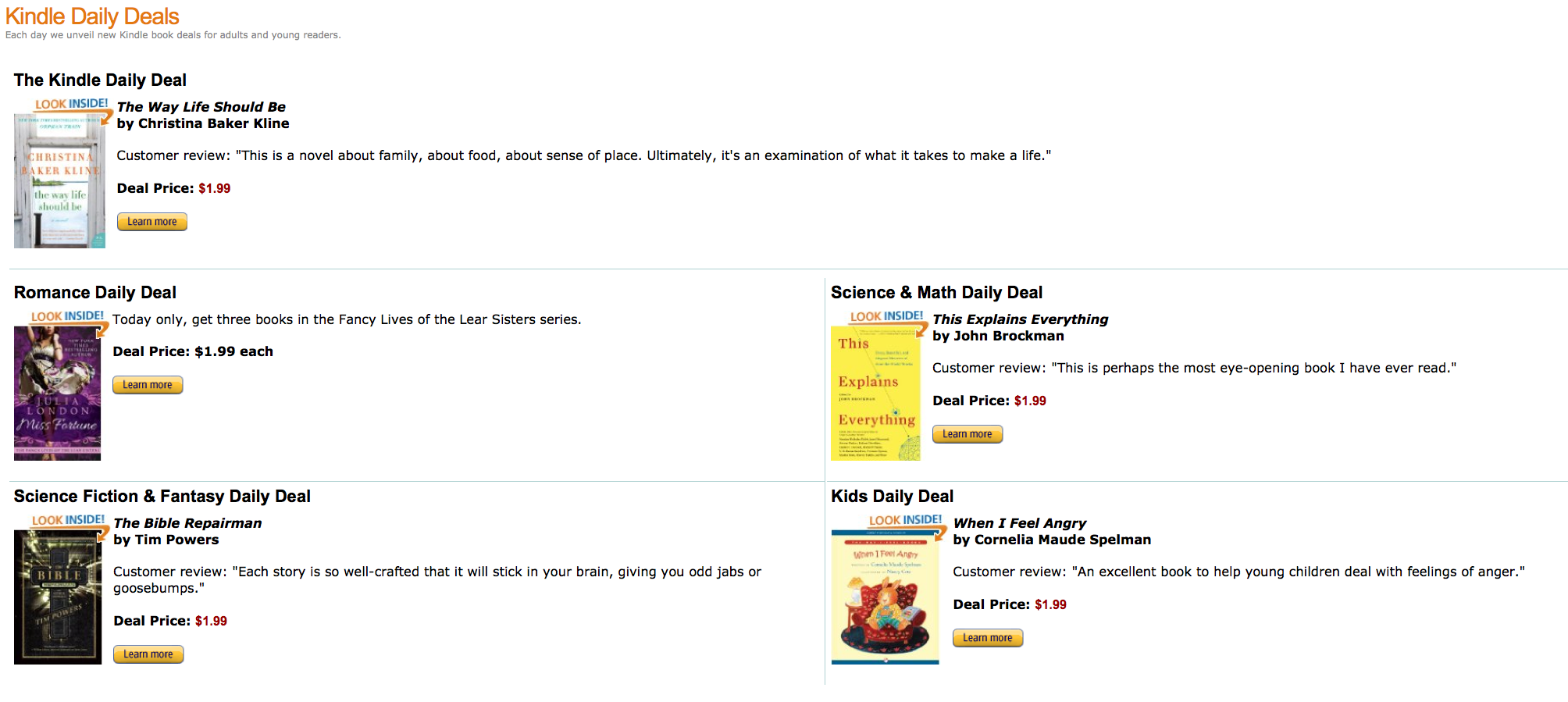The war in Iraq ended for Lieutenant Freddie Williams when an IED explosion left his mind and body shattered. Once he was a skilled gamer and expert in virtual warfare. Now he’s a broken warrior, emerging from a medically induced coma to discover he’s inhabiting two separate realities. The first is his waking world of pain, family trials, and remorse–and slow rehabilitation through the tender care of Becky, his physical therapist. The second is a dark fantasy realm of quests, demons, and magic that Freddie enters when he sleeps.
In his dreams he is Frederick, Prince of Stormwind, who must make sense of his horrific visions in order to save his embattled kingdom from the monstrous Horde. His only solace awaits him in the royal gardens, where the gentle words of the beautiful gardener, Rebecca, calm the storms in his soul. While in the conscious world, the severely wounded vet faces a strangely similar and equally perilous mission–a journey along a dark road haunted by demons of guilt and memory–and letting patient, loving Becky into his damaged and shuttered heart may be his only way back from Hell.
an excerpt from
Along The Watchtower
by David Litwack
Copyright © 2013 by David Litwack and published here with his permission
Prologue
I awoke on a slab.
No. Too soft for a slab. Softer than a corpse would need. Not a slab but a stretcher.
A fog swirled in my brain. I picked through its wisps, searching for a thought to cling to. Then my combat training kicked in. First rule—assess the situation. I steadied myself and tested my senses, starting with touch. I flexed each finger until it grazed the pad of the thumb. So far, so good. Next I listened. Not much to hear. More of a hum than silence. But I could feel a vibration nearby, a throbbing like the heart of a dying beast. My sight might tell me more, but I was afraid to open my eyes. Instead, I sucked air in through my nose.
The smell of jet fuel. Then a wind so strong it rippled my cheeks into folds.
I was outside on a runway. Alive.
Minutes later, motion as my stretcher was wheeled up a ramp and locked into place. A gentle hand rested on my arm. A sting on the soft skin at the crook of my elbow, a needle inserted. Then, still in silence, a bump from below, wheels separating from tarmac.
I knew what that meant. Farewell Iraq. Hello Ramstein.
While the critical care air transport climbed, my mind churned, still trying to plan the raid. Not that morning’s patrol into Al-Nasiriyah, but the World of Warcraft raid scheduled that evening with my guild. Gaming was how I always coped, at least until that morning when it nearly got me killed.
I started gaming after Dad died and kept playing when Joey would go on a binge or while Mom prayed through the garret window to the ocean. I even played after Richie ran off. But I shouldn’t have been gaming that morning. I should’ve been focused on my job as First Lieutenant Frederick Williams, leading my squad into bandit country. Instead I was channeling Sunstrider, head of the Lightbringer guild, trying to figure out how to get past the trolls at Blunderbore’s Gate.
I still didn’t know the cost of my inattention.
When the IED went off, I felt a shock wave but heard no sound. Maybe my eardrums had imploded. But the impact rattled the roots of my teeth. Then the pain in my legs hit, like shards of glass fraying the nerves. My first thought: not the legs. Better to die.
I’d been training to dunk on that old basket at base camp and had just managed to curl one knuckle around the rim. Not bad at five foot ten. Now, like everything else I’d ever hoped for—blown away.
Then I remembered. The archangel collapsing on me, spilling blood on my chest.
The fog in my brain turned into a movie screen, replaying images from that morning. The roof of the Humvee blown off, the sky above turning from blue to white to red. The medics cutting open my shirt.
“Help the archangel first,” I yelled, though I couldn’t hear my own words. “It’s not my blood.”
I watched their lips move and tried to read them. Concussion, they seemed to be saying. The blast had battered my brain. It must be my blood since I was soaked in it.
And while I tried to block out the pain, the oddest of thoughts struck me—I’ll never make it to level eighty.
Just what I had coming. Nine months and seven days in Iraq, my squad patrolling a hot zone, and I’d been daydreaming about a raid in a fantasy game. When the IED went off, I should’ve died.
I grabbed the edge of the stretcher and tried to roll onto my side. Big mistake. My mouth opened, but I couldn’t hear my scream. The CCAT nurse rushed over and fiddled with some tubes. Everything started to spin like the plane was in a dive. I blacked out.
It happened sometime after that. Dreams of a fantasy world like in the game. Of course, I was frightened at first. But then I figured, what the hell. Couldn’t be worse than this place.
Chapter One
A Ringing in the Ears
I awoke to the tolling of a bell.
Not the sweet chime of vespers or the carillon of noon. This bell had a more somber sound, one that I’d dreaded since childhood. With each lingering clang, my bed quilt weighed more heavily upon me until it felt like a paladin’s shield on my chest.
I squeezed my eyes shut and forced my mind to envision a different place, a garden I’d played in years before. I was nearly there, could picture the dust motes floating across the light that filtered through gaps in the pergola. I could almost smell the flowers.
Clang. The garden vanished in a burst of black smoke. The scent of flowers was replaced by the stench of charred wood. I pressed my hands to my ears.
Clang. On the seventh toll, I flung off the quilt and jumped out of bed.
Why wait for Sir Gilly to burst into my chamber and announce what I already knew? I’d knelt by my father’s bedside the night before, saw his face so pale, watched his lips struggle to speak.
“Stay strong, Frederick,” he managed to say. “And beware the cunning of the spinning wheels.”
“But how?”
“Focus,” he said, “on what you hold most dear.”
I’d prepared my whole life for the trials, and now they were upon me. I could feel them coming closer with each clang of the bells. For my father, the king, was dead.
***
I grabbed my sword and rushed into the hallway, buckling my scabbard as I went. It was well into the night, and the candles along the wall had burned low. Their flickering cast gloom into the corners of the vaulted archways, and the wax dripping down their length sculpted ghastly shapes over their sconces. I hurried past. When I reached the office of the lord chamberlain, the door stood open. He was waiting.
I’d known Sir Gilbert since birth. He had been my mentor in all things that mattered and my father’s before me. By the time I was ready to be trained, his features had settled with age. The most prominent were jowls that hung about his chin and jiggled when he laughed. When I was little, I thought they resembled fish gills, and so I called him Sir Gilly.
I spent more time with Sir Gilly than with my father. He was an affable man, quick with a jest or a magic trick. But when I was seven, everything changed. My mother died that year, and I became the sole heir to the throne. I knew then that someday the future of the kingdom would depend on me. Now that time had come.
The gleam was gone from Sir Gilly’s eyes. His jowls trembled, but not from laughter.
“I’m sorry,” he said. “He was your father and my friend. A great man. But neither of us has the luxury to mourn.”
I understood. I’d been taught all my life about the Burning Legion, and the treaty that kept the Horde at bay. But the treaty relied on magic bestowed on the reigning king. Now Stormwind was without a reigning king, and the magic that protected it would begin to fade. For the next thirty days, I’d be tasked with the trials and only if I overcame them would I succeed my father to the throne. If not, the Horde would overrun the Alliance—the end of life as we knew it. For all my lifetime of training, I felt unprepared.
“What happens now, Sir Gilly?”
“For a start, you must stop calling me Sir Gilly. I am the advisor and you the dauphin until the days of anointment are finished. If you prevail, I will be Sir Gilbert, lord chamberlain, and I shall call you Sire. If you fail, what we are called will no longer matter.”
“I won’t fail,” I said, wondering if failure were possible. For the past millennium, an unbroken line of Stormwind kings had kept the world of Azeroth free.
His gaze bore into me, no longer my mentor, no longer my friend. But every bit the advisor.
“Why do you say that?”
“Because of everything you’ve taught me.” I rose to my full height and lifted my chin. “And because I’m my father’s son.”
“You’re a brave dauphin, but you know nothing of what’s to come.”
“But all your teachings, the stories of trials past—”
“Mean little now.” He leaned on the oaken table, his fingers splayed wide against the wood grain. It was a familiar pose, the teacher urging his student to comprehend. “Each generation is different, each trial unique. Every prince must stare into the spinning wheels alone.”
I felt a fluttering in my stomach, a tightening in my chest. Sir Gilly must have seen my distress, because he came from behind the table and rested a hand on my shoulder, as he’d done so often when I struggled in training.
“Come, Dauphin. Walk with me.”
He led me up to the parapets of the castle. Despite the pre-dawn haze, I could make out the land below. I looked out past Elwynn Forest to the village of Goldshire, with its thatched-roof cottages and patchwork quilt of green pastures stitched together with stone walls. But beyond them, looming over the houses and fields, I could see the mountains of Golgoreth, high, jagged peaks where the world of the Alliance ended and the realm of the Horde began. Already, storm clouds gathered over the ridge. As I paused on the ramparts to watch, a wind gusted from the east, an unnatural gale that roared in my ears and caused ripples in my skin.
“You feel it?” Sir Gilly said. “Their power builds in the hope that you will fail. Everything is changing now, different than what you’ve come to expect.”
“How so?”
He stretched a trembling finger toward the distant mountains.
“Their evil flows like fog on a November day, seeping into everything. When your father died, the protection he gave to the countryside began to weaken. It will grow weaker still until only the walls of Stormwind provide protection. At the end of the thirty days, they too will fail.” He turned to me, his face inches from mine. “First lesson: you must not, under any circumstances, go beyond the castle walls during the days of anointment.” His brows wriggled and knotted. “And the castle itself will not be safe. The mist will enter the smallest of cracks and transform into strange beings, the source of the trials.”
I took two quick breaths and steadied myself as I’d been trained. “Tell me what I must do.”
“Second lesson: you know about the watchtower?”
I nodded. As a child, I’d sneak up there to play but knew well how it changed during anointment.
“None but you may go there for the next thirty days. For as you know, following the death of a king, the advisor is charged with mounting two bejeweled disks, one facing east and one west, transforming the watchtower into a dream chamber—a place where the dauphin must go to dream, twice each day, at sunrise and sunset. What you are shown and how you respond will determine the fate of the kingdom.”
“What will I see?”
“That, I cannot say. No prince before you has left word, written or spoken, about what he saw through the spinning wheels. Most claimed they remembered nothing at all. Others refused to tell. But in some mysterious way, what you dream will influence how you respond to the trials. The answer lies in the castle, if you have the courage to explore.”
“Explore? But I know every inch of this castle. I’ve wandered throughout it since I was a child.”
“Ah, but you were never a child during anointment. The castle you know will change. Stairways will come into being where none existed before. You’ll go down them, but when you turn back, they’ll be gone. Archways and tunnels will appear, leading to odd chambers where you’ll meet the beings I spoke of. Some will be guides—elves or priests or mage. Others will mean you harm, spectral demons, agents of the Horde. Assassins.”
“How will I know the difference?”
“Trust what’s in your heart. If that’s enough, you will save Azeroth for another generation. If not—” A sorrow came over him, weighing down his features. “I’ve lived too long. I put your father through this and now you. I wish I had died before this day.”
I’d never seen him so downcast, my source of knowledge and strength. I fingered the hilt of my sword, as I had at the start of so many training sessions. My grip on the braided leather tightened.
He looked at my hand and shook his head.
“No, Dauphin. You cannot fight this enemy with a sword.”
“But to defend against assassins?”
“It’s not your body they seek to harm. These assassins can’t threaten your being.”
“Then what is their purpose?”
“To extinguish your spirit. To make you abandon the kingdom to darkness. Their purpose is despair.” He turned toward the watchtower, standing erect, every inch the advisor. “Come. It is time to begin.”
Chapter Two
Ramstein Air Base
An echo of an echo. A dream interrupted by hushed voices talking the way people do near the deceased at a wake. One voice gruff, a man’s, possibly a smoker. The other mousy, almost a squeak. Three fingers pressed on the inside of my wrist. Thick fingers.
“His pulse is strong. Let’s give it a try.” The man’s voice rose. “Freddie, can you hear me?”
I recognized the name. Freddie. Short for Frederick. A name that must be me. Then panic. I’d been dreaming of castles and kings. Why would I want to be Freddie?
“Try his rank,” the woman said. “They’re trained to respond by rank.”
“Lieutenant Williams.”
An image flitted across my mind. Iraq. An explosion. My mind recoiled. I groped about in the darkness, trying to find the castle again.
“Did you see that?” the man said. “His eyelids twitched.”
“Lieutenant,” the woman said, louder now. At least I was no longer deaf. “Can you wiggle your thumbs?”
There was somewhere else I needed to be, something important I was supposed to do. My mind was a jumble. When I couldn’t fit the puzzle pieces together, I sent a signal to my thumbs.
“Wonderful.” A touch on my palm. The woman this time. Slender fingers. “And can you squeeze?”
I did. She squeezed back. At least I wasn’t alone. I’d always worried hell was being alone for eternity.
“Good. Now your toes.” I felt a draft as she removed the sheet. “Can you wiggle your toes for me?”
I concentrated and wiggled my toes. She sounded pleased. But then I reached for the next level before I was ready. I tried to bend my knee.
My back arced like an electric shock had run through me. I wanted to scream but had forgotten how to make a sound.
“A convulsion, Doctor?”
“Don’t think so, Mary. More likely pain.”
“Should we keep trying to wake him?”
I waited, not understanding the question but feeling it was important. The pain kept distracting me. Please, send me back.
“No. He needs more time. We’ve done all we can here. Put him back under and we’ll send him home. Let the boys in the States do the rest. He has a long road ahead.”
I wasn’t sure what “under” meant, but I had questions before I got there. What road was he talking about and why was it so long? I shifted my weight onto my elbow and tried to sit.
Oh Christ, my legs.
The smooth sense of plastic gliding across the small hairs on my arm. The pain subsided. My mind began to drift.
A bright flash. Soldiers screaming. Dogs barking. Where was my castle? Where was my quest?
Then slowly, sweet darkness. And the dream resumed.
Chapter Three
The Bequest
Sir Gilly led me to the death chamber. Already I could feel the mist from the mountains creeping into my bones, intruding like a malaise. The trials weighed heavily upon me. That, and the watchtower. But Sir Gilly insisted I bid farewell to my father first.
“We’re in unfamiliar territory,” he said, “and I know little of the right path. But of one thing I’m certain. We can do no good by forgetting our humanity.”
We stopped outside the entrance. He grasped me by the elbow and whispered, as if the ghost of my father might hear, describing the protocol of succession, though he’d explained it twice before.
“The king’s remains will lie in a casket on a gold pedestal. Once the pallbearers remove the cover, you’ll see a gray shroud covering his face. I will peel it back to below the lips. Bits of clay will cover your father’s eyes and mouth. Look until you recognize him, then nod. I’ll give you a parchment to sign and seal, your first act as the dauphin. Then kiss his forehead, a last goodbye. Be prepared for the taste of death, like dust in winter. Take a moment. He was your father as well as the king. When you’re ready, I’ll replace the shroud and close the cover for the last time. As a sign of respect, back away from the casket, never turning until you’re out the door. Do you understand?”
I was too numb to do anything but nod.
“You must answer, Dauphin.”
“Yes.”
“Say ‘I do, Advisor.’ I’m sorry, Frederick. It’s the law. We must follow the proper form.”
“I do . . . Advisor.”
Once we entered the death chamber, Sir Gilly did as he had described. I stared at the corpse, the muscles of my shoulders throbbing as if I’d held them stiff throughout the months of my father’s slow decline. I loved him and was heartbroken to see him die. But more than anything, I dreaded becoming king.
***
Minutes before sunrise. We stood by the portal at the base of the watchtower, an opening so narrow, only a single man turned sideways could pass through. I took a deep breath and entered. Inside, twin staircases spiraled upward around a stone core. In normal times, one was designated for the ascent and the other for the descent, but as with so many things in the days of anointment, the rules had changed.
“Use the leftmost one at sunrise,” Sir Gilly said, “and the right for sunset.”
“What if I encounter an assassin blocking my way? May I escape on the other side?”
“Obey the rules, Dauphin. Do not deviate. Any encounter with a spirit or demon is meant to be.”
I scurried up the hundred and one stairs to the top of the watchtower, pausing on the last landing to wait for a red-faced and out-of-breath Sir Gilly. He needed a moment before entering, giving me a chance to survey the chamber.
I hadn’t been to the watchtower in many years, its allure nothing but a relic of my childhood. I noted how age had changed the place. On the surface it looked less imposing, as all memories of childhood do, a musty room, perfectly round and six paces across. The tangle of beams that supported the point of its cupola was less impressive now, hung with spider webs and covered with droppings where birds had made their nests. The elaborate molding that some artisan had added centuries before had been worn smooth by rainwater and time.
But one thing was the same, exactly as it had been etched into my memory when I was little. Two circular windows breached the battlement walls. Oculi as Sir Gilly had taught me, great eyes that looked out across the land from this, the highest point of the castle. One faced east and the other west. And now, two platforms had been placed before them. On top of each was a disk framed by a golden rim, with a kaleidoscope of gems in the center—amethyst and amber, emerald and bloodstone. I reached out to touch them, but Sir Gilly stayed my hand.
“No, Dauphin. Your role is to sit and dream.”
He motioned to a wooden stool facing east. Once I was settled, he turned to go.
A sudden agitation overcame me.
“Wait, Advisor. Stay.”
“It is forbidden.”
“Stay only this first time.”
“I cannot. I must be gone before the sun is up.”
Before I could say another word, he fled as if the dawn’s first rays might scald him. The sound of his bootsteps trailed away as he raced down the stone stairs. I was alone.
I left my post and went to the western side to peek past the disk toward the darkened valley below. For an instant, I thought I caught a glimpse of something, two riders approaching through the jungle of Stranglethorn, out of the mist at the base of Golgoreth. Assassins?
I watched until my eyes watered. Nothing but shadows. I shook off the sense of dread and returned to the morning oculus. A red glow had begun to dance on the mountaintops. The sun was rising, casting light over the farms of Goldshire and the trees of Elwynn Forest, lands dependent on my protection. I took my seat once more on the wooden stool and glanced through the gems, doubtful anything would happen. I waited.
At once, I was staring into the teeth of a hot wind whistling through the oculus from the mountains, chasing the rays of the sun.
And slowly, the wheel began to spin.
Chapter Four
VA Hospital Stateside
I stared into a pair of Coke-bottle glasses wedged between a green crepe cap and a mouth-and-nose mask. The magnified eyes behind the glasses crinkled at the corners, a hint of a smile.
“You’re awake,” a muffled female voice said. “About time.”
“How . . . long?” Each word burned as it forced its way up my throat.
“You sure you want to know?”
“Uh-hum.” It hurt to talk.
“Almost two weeks. Medically induced coma.”
“Where . . .?
“VA Hospital. West Roxbury, Massachusetts.”
“Why . . .?”
“I guess they couldn’t find out much about you. No family. Last known home on Cape Cod but grew up in Jamaica Plain. We were the closest so they sent you here.”
I tried to shake my head. Not what I was asking, but I was afraid to move.
“Why . . .?”
“Oh. You mean why are you here. I’ll let Dr. B. answer that. You should drink some water. We’ll need to take it slow. You haven’t had anything in a while.”
I nodded, mostly by blinking. The least movement made my head throb.
She brought a plastic cup over and stuck a straw into my mouth. I took a sip, swished the water around with my tongue, and swallowed. It felt tight going down. She withdrew the straw and waited. I must have looked like hell. Her eyes narrowed, then crinkled again. A latex-gloved hand reached out and stroked my forehead.
“You’ve had a rough time, Freddie. Okay if I call you that? I’m Dinah, your nurse. You know, like,” she half sang, “someone’s in the kitchen with . . . No need for formality here. But we’ll do everything we can for you. You’ve served your tour and you’re home now.”
Home. An image flashed in my mind. A gingerbread house, one of fifteen around a green with a steepled tabernacle overlooking them all. Ours was the runt of the litter, tucked into a half-lot at the end and farthest from the ocean.
The front door for some reason was painted purple and had frosted windows with palm-frond cutouts. Joey used to tell me they were cannabis leaves. Richie claimed they looked like snowflakes. But I knew they were palms. The steeply pitched roof had white scalloped trim, and a tiny balcony on the second floor overlooked the green. The house had four and a half rooms, a kitchen and sitting room downstairs and two bedrooms up—one for my parents and the other for the three of us boys. The half was a garret with a single circle-shaped window where Mom used to sit and pray to the ocean.
The first time I saw it, I was ten. Mom was so happy that day—the ocean at last. The five of us raced each other into the house and scrambled up the staircase to the garret to check out the view. Dad and Mom, Richie, Joey, and me. And now only I was left.
And not much of me, from the look on Dinah’s face.
I blocked out the thought. My mind wanted no part of Iraq. But I wasn’t ready for memories of home either.
I mumbled one word. “Morphine.”
The eyes behind the Coke-bottle glasses sagged, and the green crepe cap nodded. I felt a tube along my arm shift. Then sleep.
***
I stirred to the sound of Nurse Dinah removing the metal cover from a plate of scrambled eggs. Two days had passed, and I’d managed to spend a fair part of them conscious. I’d graduated from water to juice to soup, and now this. I was actually starting to look forward to solid food.
Dinah’s cheerful voice serenaded me as she positioned the tray.
“Big day today, Freddie. A hearty breakfast. But we’ll need to sit you up first.”
She pressed a button on my bed control and a voice responded.
“Yes?”
“This is Dinah, can you send Ralph in?”
A moment later, Ralph filled the doorway to my room. He was dressed all in white—white smock, white trousers, white shoes—and wore a mask and cap like everyone else. And he was huge, almost needing to bow his head to get into the room. I bet he could touch the rim with either hand standing flat-footed.
“This is our newest patient,” Dinah said. “Lieutenant Williams, but he answers to Freddie.”
Ralph nodded, then bent down and reached out a latex-gloved hand to shake mine.
“Pleasure.”
Another mask, another smile. This time I could tell because his great brows slanted upward. I thought I might like Ralph. I suspected I’d be seeing a lot of him.
Dinah and Ralph moved to either side of the bed, grabbed the pad beneath me, and curled its folds into their fists.
“Get ready, Freddie. Take a deep breath.”
I did.
She counted to three and they slid me back toward the head of the bed. I let out a yelp.
“Sorry Freddie. Best way is to do it quickly.”
Then they raised the back of the bed. It was my first time sitting since Iraq.
Ralph started to leave but came back, placed a great gloved paw on my head and rubbed the stubble.
“Hang in there, kid. It’ll grow back.” His voice rumbled like he had his own built-in echo chamber and seemed to linger after he was gone.
Dinah helped me with the meal. Though it was a modest portion, I didn’t think I’d be able to eat it all. Somehow I managed to down every bite. When I was done and the tray shoved out of the way, Dinah cleaned me up, then hovered over me.
“Are you ready for Doctor B.? He thinks you’re well enough to get evaluated.”
“Haven’t you poked me enough?” I was glad to be speaking in full sentences.
Dinah tapped her head.
“Concussion test. Only you can tell us how well your brain’s working. I’ll let Dr. B. know you’re ready.”
She gave me a little wave and followed Ralph out the door.
Now that I was half upright and alone, I did my first self-assessment, like evaluating intel before a patrol or health and resources in Warcraft before a raid. Only more personal.
I tugged at the neck of my hospital gown, enough to peek underneath. My chest had been shaved and was covered with EKG cups. Tubes ran out of my body in various places, a catheter and lines for antibiotics and morphine. I reached up to my head where Ralph had patted. Peach fuzz. The CCAT guys must have suspected damage to my brain and shaved it. Maybe they were right. Machines beeped around me. I watched the peaks and valleys of the heart monitor. No flat line. I was still alive. Finally, I took a deep breath and slipped the sheet back.
The good news—both legs were still attached. But a black brace enveloped the right one from hip to ankle, secured with Velcro. Metal hinges locked the knee straight.
I peeled back a strip of Velcro as gently as I could, wincing at each fraction of an inch. When I’d removed enough, I spread the brace. Scabs and scars decorated both legs. But the major damage was an angry incision held together with what looked like staples running from mid-thigh to below what was left of my knee. It still oozed along the edges.
When I heard footsteps down the hall, I reset the Velcro and replaced the sheet.
A second later Doctor B. came in, a chunky man with enough wrinkles around his eyes to tell me he’d treated a lot of veterans. He seemed friendly enough, though it was hard to tell through the mask. He’d been to see me before, but mostly just to read my chart and nod. This time, he pulled over a chair and settled beside me.
“How are you, Lieutenant?”
“You tell me.”
“Okay.” He checked my chart for the third time. “Let’s start with your eyes.”
He took a penlight from his smock pocket, tested it on his own eyes, and then pointed it at mine. The light was bright but tolerable.
“Follow the light,” he said.
I did, as he moved it from left to right and back again.
“Very good. Now a few questions. Can you tell me your name?”
“You know my name.”
“I’m not the one whose cognitive abilities need testing. Please. We need to follow the proper form.”
“Why?”
“About sixty-eight percent of the wounded we see also suffer from traumatic brain injury. It’s the signature wound of these wars where you guys are subjected to IEDs and other kinds of blasts. No shrapnel hit your head. That’s why they shaved you, to be certain there were no hidden wounds. The brain scan was clear, but you were pretty groggy when they pulled you out. Non-penetrating head wounds can damage the brain without leaving a mark.”
“You think my brain’s fucked up?”
“Just being thorough, Freddie. We use the Glasgow coma scale to measure consciousness, ranking from three to fifteen. Three is alive but unresponsive. You were a five on the CCAT, an eight in Ramstein. Let’s see if I can get you to the next level. Now please tell me, what’s your name?”
Another game. Still trying to level up.
“Frederick Williams,” I said. “Lieutenant first class. You want my serial number too?”
He chuckled awkwardly. “No. That’ll do. Do you know where you are?”
“Only because they told me. VA Hospital, West Roxbury.”
“And who won the World Series last year?”
“You think I’d forget that?”
“Please cooperate. I’m trying to establish you have memory from before the blast.”
“Red Sox.”
“Thank you.” He scribbled something in his notebook, then looked up. “Any headaches?”
“No . . . Yes. I can’t tell with all the drugs you’re giving me.”
“I’ll take that as a yes. Now, please count down by nines from a hundred.”
“You gotta be kidding.”
He tapped his index finger to his head. “Different part of the brain.”
“My brain’s okay. It’s my leg that’s fucked up.”
“We’ll get to that. For now, humor me.”
With an honors degree in architecture, this ought to be easy. But I’d discovered some things didn’t work as well as they used to. I thought a second, then rattled the numbers off.
“A hundred, ninety-one, eighty-two, seventy-three—”
“Impressive. A lot of people can’t subtract that fast even without a concussion.”
“No more questions until I get mine answered.”
Dr. B. laughed. “Fair enough.”
“Why are you all wearing masks? Am I contagious?”
“Just a precaution. IEDs are bad, medically speaking. It’s not enough to plant explosives. They pack them with rocks and gravel. Stuff that can cause infection. The soil of Iraq is contaminated with nasty bacteria called Acinetobacter. Both your legs were pockmarked with debris from the blast. Some of the fragments might have carried the bacteria. It’s generally drug resistant and spreads easily. You’ve shown no signs of infection yet. That’s good, but protocol requires we quarantine you for a while longer. Now, is it my turn?”
“One more.” My throat tightened, and I had trouble getting the words out. “What happened to the archangel?”
Dr. B. gaped at me and set his clipboard down.
“Have you been having dreams, Freddie?”
I began to panic, then realized how strange my question must have sounded.
“The archangel’s a nickname, a handle for Specialist Sanchez, Pedey Sanchez. He was with me in the Humvee when—” My voice trailed off. “You probably don’t know.”
He slid his chair closer and took my hand.
“I’ve read the report, Freddie. I’m sorry. Sergeant Sanchez was killed instantly, his whole chest was blown—”
I turned my head away, one of the few things I could do without pain. I wished I could walk so I could run out of the room.
“I’m sorry,” he repeated. “That was insensitive.” Then after a pause, “The archangel’s an interesting nickname. Why did you call him that?”
It took a minute before I could answer. This was a lot harder than subtracting by nines.
“He was ugly as sin, a shaved head, looked like the top of a bullet, and brows that almost hid his eyes. But they were the gentlest brown eyes I’d ever seen. And he wore this medallion, a two-handed great sword on a cross. A warrior and a saint. Last guy you’d expect to be religious. He approached every patrol like a prophesied event. Used to give each of us a little Bible quote before we headed out.
“He was twenty-five like me, but married with an eight-year-old son. He’d call them twice a day. Before every patrol, he’d touch the cross with two fingers, say the names of his wife and kid, and then kiss the two fingers.
“Pedey was part of my guild in World of Warcraft. His character was a Draenei priest and his favorite spell was the archangel spell because it increased healing. That’s why he took it as his character’s name. The archangel. Looked like a demon but had the soul of an angel. And he’s dead because of me.”
The doctor waited. It was his turn for questions, but he seemed smart enough not to push it. I tried to stay quiet too, but the words slipped out.
“Can I have some morphine now?”
“Are you in pain?”
“Only if I try to move.”
“Then why do you want morphine?”
I closed my eyes. “Just give me some, please.”
“We’re trying to bring you back, Freddie. Morphine’s the wrong direction.”
“I can’t walk. Morphine’s my only way out of here.”
“Lieutenant,” he said loudly enough to make my eyes pop open. “It wasn’t your fault.”
“Yeah. Well, you weren’t there.”
“No. But I know you didn’t plant that IED or pack it with gravel to do maximum harm. And you didn’t start the war. You just fought in it.” He stood and fiddled with the IV tower, poking at the bags, most likely to give his hands something to do. After a minute, he pressed his thighs against the bed and leaned over me.
“I know it’s hard, Freddie. I see too many boys sent home like you. But escaping reality isn’t the way back.” When I didn’t respond, he sighed. “Okay, I’ll give you something to help you sleep. But first, you should know what happened and what the road back looks like.”
I nodded. The dreaded road back.
“You were badly injured. In any other war, you would have died. Today we’re able to get a wounded soldier from the battlefield to a Critical Care Air Transport to a hospital within forty-eight to seventy-two hours. Your leg was hit hard, a 155 mm fragment full force. Shattered the patella and broke off the platform at the top of the femur. The quad tendon ruptured. Damned near severed an artery too. The medics did everything they could to stabilize you. Then you were taken by CCAT to Germany. You had multiple surgeries there to repair the artery and remove dozens of bits of shrapnel and gravel. They managed to save not only your life but your leg. Then they flew you to Andrews and from there to here. We fixed what we could. Rebuilt the femur, patched the patella, reattached the tendon.”
My throat felt suddenly dry as cotton. “Did it work?”
“That remains to be seen. Your leg sustained a lot of damage. Time will tell if the nerves are okay.”
My brain was well enough to suspect the implications, but I tuned it out.
“So no more basketball? Before the attack, I was training to dunk.”
I waited for him to answer. I couldn’t read the expression under his mask, but his silence was deafening. I forced a swallow.
“Will I be able to walk again?”
He hesitated, apparently not one to make false promises.
“That may be up to you. Lots of rehab. You’ll have to relearn how. But you’re young and were athletic, so that will help. Your brain needs to reconnect with that area of the body. Pain is the start of that reconnecting. Think of it as a marathon, not a sprint.” I could see him wince under the mask. “Sorry, bad analogy.”
He wrote out a prescription for something to help me sleep and turned to go.
“I’ll give this to the nurse.” But before he left, he grabbed my chart. After flipping to the third page, he shook his head.
“What now?” I said.
An upturn in his crow’s feet showed he was smiling. “I was checking your height. Five foot ten. You’re too short to dunk.”
“That’s what they all said.”
He replaced the chart on its hook. “This is going to be a long journey, Lieutenant, but I’ll be with you the whole way. Think of me as your guide. And there’ll be others as well.”
He paused in the doorway. I could see him grappling with something he wanted to say. When he finally spoke, his voice was pained.
“You’re not responsible for your friend, the archangel. But you should know that when he fell on you, he probably saved your life. The fragments that killed him were headed for your heart. A lot of people helped save you, Freddie. The archangel was one more. Don’t let his sacrifice go to waste.”
… Continued…
Download the entire book now to continue reading on Kindle!

